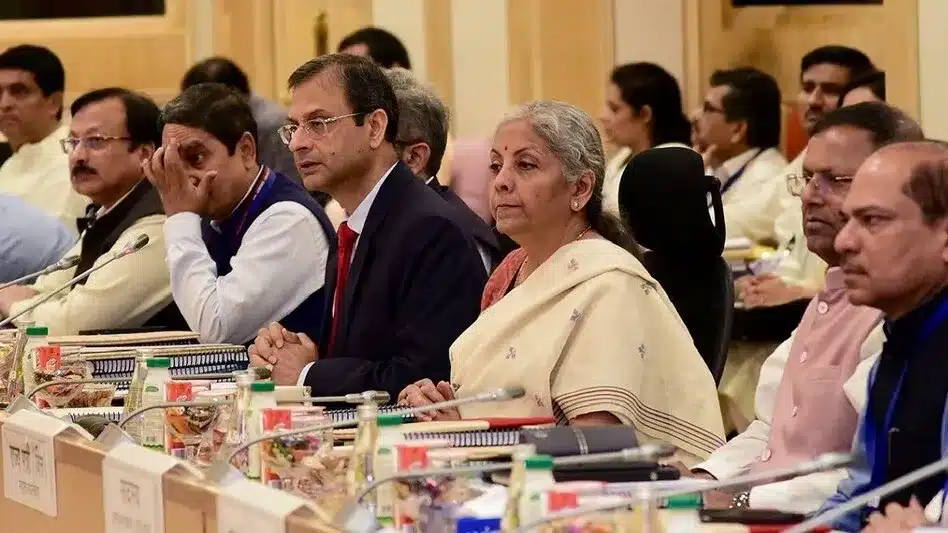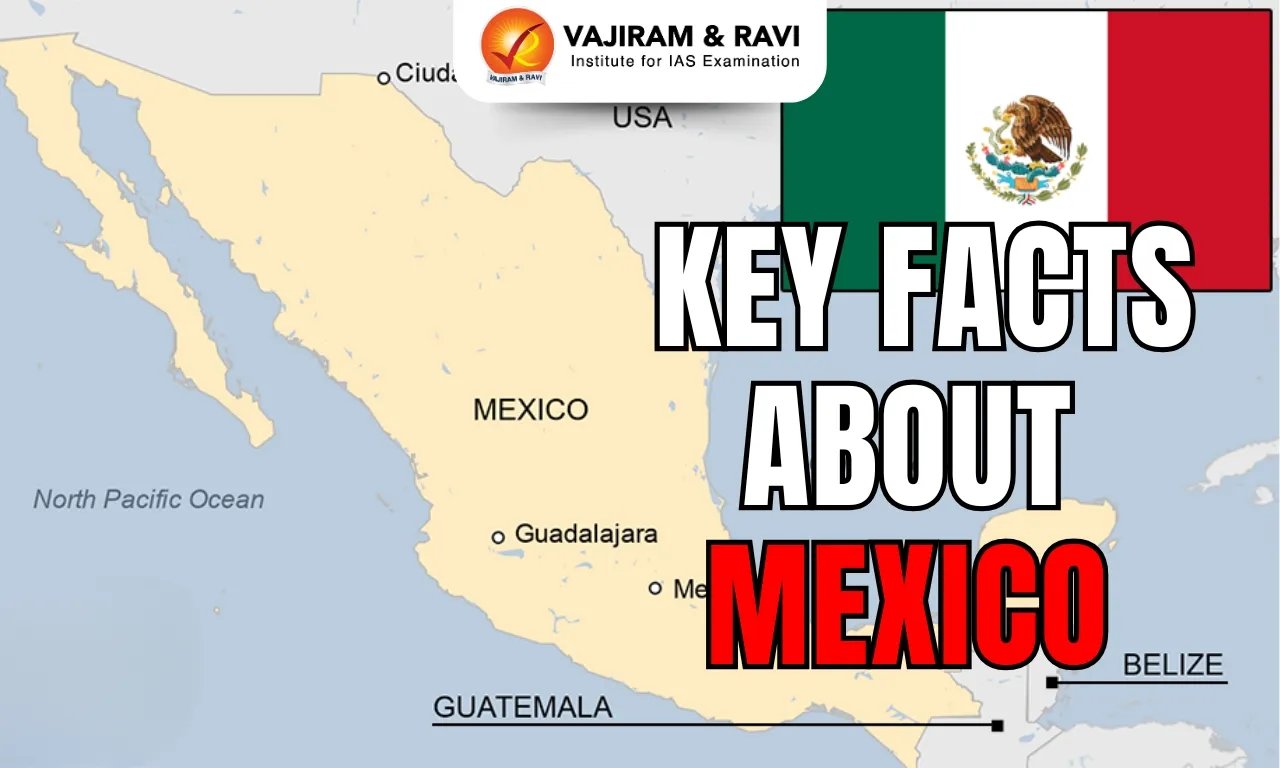About GST Council:
- It is a constitutional body responsible for making recommendations on issues related to the implementation of the Goods and Services Tax (GST) in India.
- Article 279A of the Indian Constitution gives power to the President of India to constitute a joint forum of the Centre and States called the GST Council, consisting of:
- Union Finance Minister as Chairperson
- The Union Minister of State, in-charge of Revenue of finance
- The Minister in-charge of finance or taxation, or any other Minister nominated by each State Government
- It is an apex committee to modify, reconcile, or make recommendations to the Union and the States on important issues related to GST, like the goods and services that may be subjected to or exempted from GST, model GST Laws, principles that govern Place of Supply, threshold limits, GST rates including the floor rates with bands, special rates for raising additional resources during natural calamities/disasters, special provisions for certain States, etc.
- Decisions in the GST Council are taken during its meetings.
- One half of the total number of members of the GST Council shall constitute the quorum at its meeting.
- Each decision of the council must be supported by a majority of not less than three-fourth of weighted votes of the members present and voting.
- The vote of the Central Government shall have a weightage of 1/3rd of the votes cast, and the votes of all the State Governments taken together shall have a weightage of 2/3rd of the total votes cast in that meeting.
- Secretariat:
- The Secretariat manages the GST Council.
- It is manned by officers taken on deputation from both the Central and State Governments.
- The entire cost of managing the Secretariat is borne by the Central Government.
- The Ex-officio Secretary to the GST Council is the Revenue Secretary of India.
- The office of the council is located in New Delhi.
What is the Goods and Services Tax (GST)?
- It is an indirect tax which has replaced many indirect taxes in India, such as excise duty, VAT, services tax, etc.
- The GST Act was passed in Parliament on 29th March 2017 and came into effect on 1st July, 2017.
- It is a single domestic indirect tax law for the entire country.
- It is a comprehensive, multi-stage, destination-based tax that is levied on the supply of goods and services, right from the manufacturer to the consumer.
- Under the GST regime, the tax is levied at every point of sale.
- In the case of intrastate sales, Central GST and State GST are charged.
- All the interstate sales are chargeable to the Integrated GST.
- Credits of input taxes paid at each stage will be available in the subsequent stage of value addition, which makes GST essentially a tax only on value addition at each stage.
- The final consumer will thus bear only the GST charged by the last dealer in the supply chain, with set-off benefits at all the previous stages.
- The GST is paid by consumers, but it is remitted to the government by the businesses selling the goods and services.
Q1: What is an Indirect Tax?
An indirect tax is collected by one entity in the supply chain, such as a manufacturer or retailer, and paid to the government; however, the tax is passed onto the consumer by the manufacturer or retailer as part of the purchase price of a good or service. The consumer is ultimately paying the tax by paying more for the product.
Last updated on December, 2025
→ Check out the latest UPSC Syllabus 2026 here.
→ Join Vajiram & Ravi’s Interview Guidance Programme for expert help to crack your final UPSC stage.
→ UPSC Mains Result 2025 is now out.
→ UPSC Notification 2026 is scheduled to be released on January 14, 2026.
→ UPSC Calendar 2026 is released on 15th May, 2025.
→ The UPSC Vacancy 2025 were released 1129, out of which 979 were for UPSC CSE and remaining 150 are for UPSC IFoS.
→ UPSC Prelims 2026 will be conducted on 24th May, 2026 & UPSC Mains 2026 will be conducted on 21st August 2026.
→ The UPSC Selection Process is of 3 stages-Prelims, Mains and Interview.
→ UPSC Result 2024 is released with latest UPSC Marksheet 2024. Check Now!
→ UPSC Prelims Result 2025 is out now for the CSE held on 25 May 2025.
→ UPSC Toppers List 2024 is released now. Shakti Dubey is UPSC AIR 1 2024 Topper.
→ UPSC Prelims Question Paper 2025 and Unofficial Prelims Answer Key 2025 are available now.
→ UPSC Mains Question Paper 2025 is out for Essay, GS 1, 2, 3 & GS 4.
→ UPSC Mains Indian Language Question Paper 2025 is now out.
→ UPSC Mains Optional Question Paper 2025 is now out.
→ Also check Best IAS Coaching in Delhi

















